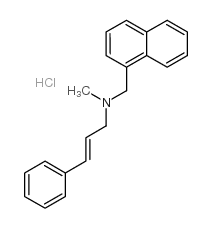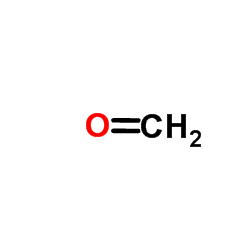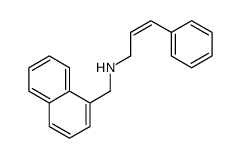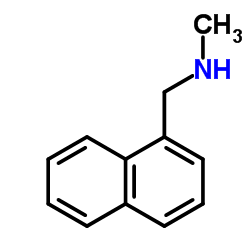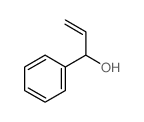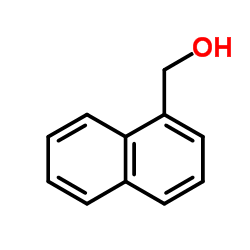65472-88-0
| 中文名 | 萘替芬 |
|---|---|
| 英文名 | naftifine |
| 中文别名 |
桂萘甲胺
3-苯基-2-丙烯-N-甲基-1-萘甲胺 (E)-N-甲基-N-(3-苯基-2-丙烯基)-1-萘甲胺 N-反-肉桂基-N-甲基-(1-萘甲基)胺盐酸盐 萘夫替芬 |
| 英文别名 |
N-cinnamyl-N-methylnaphthalen-1-ylmethanamine
Naftifine Naftifin UNII-4FB1TON47A MFCD00865622 (E)-N-methyl-N-(naphthalen-1-ylmethyl)-3-phenylprop-2-en-1-amine Naftifinum Naftifina |
| 密度 | 1.082 g/cm3 |
|---|---|
| 沸点 | 440.1ºC at 760 mmHg |
| 熔点 | 177 °C |
| 分子式 | C21H21N |
| 分子量 | 287.39800 |
| 闪点 | 194.4ºC |
| 精确质量 | 287.16700 |
| PSA | 3.24000 |
| LogP | 4.98500 |
| 储存条件 | 存放在密封容器内,并放在阴凉,干燥处。储存的地方必须远离氧化剂,远离火源和热。 |
| 稳定性 | 远离氧化物,热和光。 |
| 分子结构 | 1、 摩尔折射率:97.45 2、 摩尔体积(cm3/mol):265.4 3、 等张比容(90.2K):691.4 4、 表面张力(dyne/cm):46.0 5、 极化率(10-24cm3):38.63 |
| 计算化学 | 1.疏水参数计算参考值(XlogP):5.1 2.氢键供体数量:0 3.氢键受体数量:1 4.可旋转化学键数量:5 5.互变异构体数量:无 6.拓扑分子极性表面积3.2 7.重原子数量:22 8.表面电荷:0 9.复杂度:342 10.同位素原子数量:0 11.确定原子立构中心数量:0 12.不确定原子立构中心数量:0 13.确定化学键立构中心数量:1 14.不确定化学键立构中心数量:0 15.共价键单元数量:1 |
| 更多 | 1. 性状:无色黏稠液体. 2. 密度(g/mL,25/4℃):未确定 3. 相对蒸汽密度(g/mL,空气=1):未确定 4. 熔点(ºC):177 5. 沸点(ºC,常压):162~167 6. 沸点(ºC,5.2kPa):未确定 7. 折射率:未确定 8. 闪点(ºC):未确定 9. 比旋光度(º):未确定 10. 自燃点或引燃温度(ºC):未确定 11. 蒸气压(kPa,25ºC):未确定 12. 饱和蒸气压(kPa,60ºC):未确定 13. 燃烧热(KJ/mol):未确定 14. 临界温度(ºC):未确定 15. 临界压力(KPa):未确定 16. 油水(辛醇/水)分配系数的对数值:未确定 17. 爆炸上限(%,V/V):未确定 18. 爆炸下限(%,V/V):未确定 19. 溶解性:未确定。 |
|
Section I.Chemical Product and Company Identification Chemical Name N-trans-Cinnamyl-N-methyl-(1-naphthylmethyl)amine Hydrochloride Portland OR SynonymNot available. C21H21N•HCl Chemical Formula
CAS Number65472-88-0 Section II.Composition and Information on Ingredients Chemical NameCAS Number Percent (%)TLV/PELToxicology Data N-trans-Cinnamyl-N-methyl-(1-naphthylmethyl)amine65472-88-0Min. 98.0 (T) Not available.Not available. Hydrochloride Section III. Hazards Identification Acute Health EffectsNo specific information is available in our data base regarding the toxic effects of this material for humans. However, exposure to any chemical should be kept to a minimum. Skin and eye contact may result in irritation. May be harmful if inhaled or ingested. Always follow safe industrial hygiene practices and wear proper protective equipment when handling this compound. Chronic Health EffectsCARCINOGENIC EFFECTS : Not available. MUTAGENIC EFFECTS : Not available. TERATOGENIC EFFECTS : Not available. DEVELOPMENTAL TOXICITY: Not available. There is no known effect from chronic exposure to this product. Repeated or prolonged exposure to this compound is not known to aggravate existing medical conditions. Section IV.First Aid Measures Eye ContactCheck for and remove any contact lenses. DO NOT use an eye ointment. Flush eyes with running water for a minimum of 15 minutes, occasionally lifting the upper and lower eyelids. Seek medical attention. Treat symptomatically and supportively. Skin ContactIf the chemical gets spilled on a clothed portion of the body, remove the contaminated clothes as quickly as possible, protecting your own hands and body. Place the victim under a deluge shower. If the chemical touches the victim's exposed skin, such as the hands: Gently and thoroughly wash the contaminated skin with running water and non-abrasive soap. Be particularly careful to clean folds, crevices, creases and groin. Cover the irritated skin with an emollient. Seek medical attention. Treat symptomatically and supportively. Wash any contaminated clothing before reusing. InhalationIf the victim is not breathing, perform artificial respiration. Loosen tight clothing such as a collar, tie, belt or waistband. If breathing is difficult, oxygen can be administered. Seek medical attention. Treat symptomatically and supportively. IngestionINDUCE VOMITING by sticking finger in throat. Lower the head so that the vomit will not reenter the mouth and throat. Loosen tight clothing such as a collar, tie, belt, or waistband. If the victim is not breathing, administer artificial respiration. Examine the lips and mouth to ascertain whether the tissues are damaged, a possible indication that the toxic material was ingested; the absence of such signs, however, is not conclusive. Seek immediate medical attention and, if possible, show the chemical label. Treat symptomatically and supportively. Section V. Fire and Explosion Data Auto-IgnitionNot available. FlammabilityCombustible. Flash PointsFlammable LimitsNot available. Not available. Combustion ProductsThese products are toxic carbon oxides (CO, CO 2), nitrogen oxides (NO, NO2), halogenated compounds. WARNING: Highly toxic HCl gas is produced during combustion. Fire Hazards No specific information is available regarding the flammability of this compound in the presence of various materials. Explosion HazardsRisks of explosion of the product in presence of mechanical impact: Not available. Risks of explosion of the product in presence of static discharge: Not available. No additional information is available regarding the risks of explosion. Continued on Next Page N-trans-Cinnamyl-N-methyl-(1-naphthylmethyl)amine Hydrochloride Fire Fighting Media SMALL FIRE: Use DRY chemicals, CO 2, water spray or foam. and InstructionsLARGE FIRE: Use water spray, fog or foam. DO NOT use water jet. Section VI.Accidental Release Measures Spill CleanupIn case of a spill and/or a leak, always shut off any sources of ignition, ventilate the area, and exercise caution. Use a shovel to put the material into a convenient waste disposal container. Finish cleaning the spill by rinsing any Instructions contaminated surfaces with copious amounts of water. Consult federal, state, and/or local authorities for assistance on disposal. Section VII. Handling and Storage Handling and StorageKeep away from heat and sources of ignition. Mechanical exhaust required. When not in use, tightly seal the container and store in a dry, cool place. Avoid excessive heat and light. DO NOT breathe dust. In case of insufficient ventilation, Information wear suitable respiratory equipment. If you feel unwell, seek medical attention and show the label when possible. Treat symptomatically and supportively. Avoid contact with skin and eyes. Always store away from incompatible compounds such as oxidizing agents. Section VIII. Exposure Controls/Personal Protection Engineering ControlsUse process enclosures, local exhaust ventilation, or other engineering controls to keep airborne levels below recommended exposure limits. If user operations generate dust, fume or mist, use ventilation to keep exposure to airborne contaminants below the exposure limit. Personal ProtectionSplash goggles. Lab coat. Dust respirator. Boots. Gloves. A MSHA/NIOSH approved respirator must be used to avoid inhalation of the product. Suggested protective clothing might not be sufficient; consult a specialist BEFORE handling this product. Exposure Limits Not available. Section IX. Physical and Chemical Properties Physical state @ 20°CPowder.Solubility Not available. Not available. Specific Gravity Molecular WeightPartition Coefficient 323.87Not available. Boiling PointVapor Pressure Not available.Not available. Melting Point177°C (350.6°F)Vapor DensityNot available. Refractive IndexNot available.VolatilityNot available. Critical TemperatureNot available.OdorNot available. ViscosityNot available.TasteNot available. Section X.Stability and Reactivity Data Stability This material is stable if stored under proper conditions. (See Section VII for instructions) Conditions of InstabilityAvoid excessive heat and light. Incompatibilities Reactive with oxidizing agents. Section XI. Toxicological Information RTECS NumberNot available. Eye contact. Inhalation. Ingestion. Routes of Exposure Toxicity DataNot available. CARCINOGENIC EFFECTS : Not available. Chronic Toxic Effects MUTAGENIC EFFECTS : Not available. TERATOGENIC EFFECTS : Not available. DEVELOPMENTAL TOXICITY: Not available. There is no known effect from chronic exposure to this product. Repeated or prolonged exposure to this compound is not known to aggravate existing medical conditions. Acute Toxic EffectsNo specific information is available in our data base regarding the toxic effects of this material for humans. However, exposure to any chemical should be kept to a minimum. Skin and eye contact may result in irritation. May be harmful if inhaled or ingested. Always follow safe industrial hygiene practices and wear proper protective equipment when handling this compound. Continued on Next Page N-trans-Cinnamyl-N-methyl-(1-naphthylmethyl)amine Hydrochloride Section XII.Ecological Information EcotoxicityNot available. Environmental FateNot available. Section XIII. Disposal Considerations Recycle to process, if possible. Consult your local or regional authorities. You may be able to dissolve or mix material with Waste Disposal a combustible solvent and burn in a chemical incinerator equipped with an afterburner and scrubber system. Observe all federal, state, and local regulations when disposing of this substance. Section XIV. Transport Information DOT ClassificationNot a DOT controlled material (United States). PIN NumberNot applicable. Proper Shipping Name Not applicable. Packing Group (PG)Not applicable. DOT Pictograms Section XV. Other Regulatory Information and Pictograms TSCA Chemical InventoryThis product is NOT on the EPA Toxic Substances Control Act (TSCA) inventory. The following notices are required by 40 CFR 720.36 (C) for those products not on the inventory list: (EPA) (i) These products are supplied solely for use in research and development by or under the supervision of a technically qualified individual as defined in 40 CFR 720.0 et sec. (ii) The health risks of these products have not been fully determined. Any information that is or becomes available will be supplied on an MSDS sheet. WHMIS ClassificationNot controlled under WHMIS (Canada). (Canada) EINECS Number (EEC) Not available. EEC Risk StatementsNot available. SECTION 16 - ADDITIONAL INFORMATION N/A |
|
生态学数据: 通常对水是不危害的,若无政府许可,勿将材料排入周围环境。
|
| 危害码 (欧洲) | Xn,Xi |
|---|---|
| 风险声明 (欧洲) | R22:Harmful if swallowed. R36/37/38:Irritating to eyes, respiratory system and skin . |
| 安全声明 (欧洲) | S26 |
| WGK德国 | 3 |
| RTECS号 | DB7350000 |
| 海关编码 | 2921499090 |
| 上游产品 10 | |
|---|---|
| 下游产品 0 | |
| 海关编码 | 2921499090 |
|---|---|
| 中文概述 | 2921499090 其他芳香单胺及衍生物及它们的盐. 增值税率:17.0% 退税率:9.0% 监管条件:无 最惠国关税:6.5% 普通关税:30.0% |
| 申报要素 | 品名, 成分含量, 用途 |
| Summary | 2921499090 other aromatic monoamines and their derivatives; salts thereof VAT:17.0% Tax rebate rate:9.0% Supervision conditions:none MFN tariff:6.5% General tariff:30.0% |


